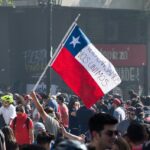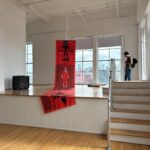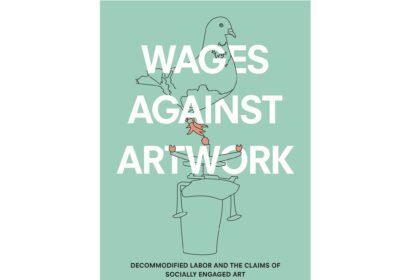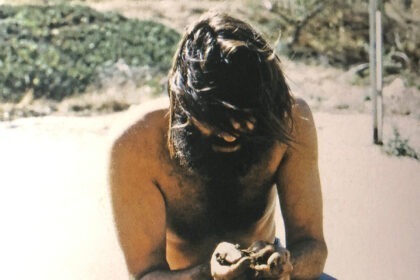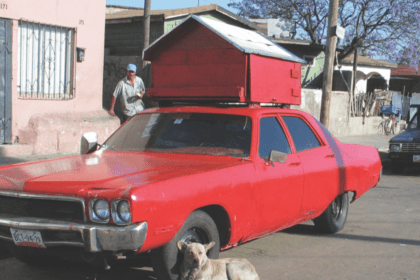Reflections from the Citizen, Political, and Critical Academy
Mirliana Ramírez-Pereira
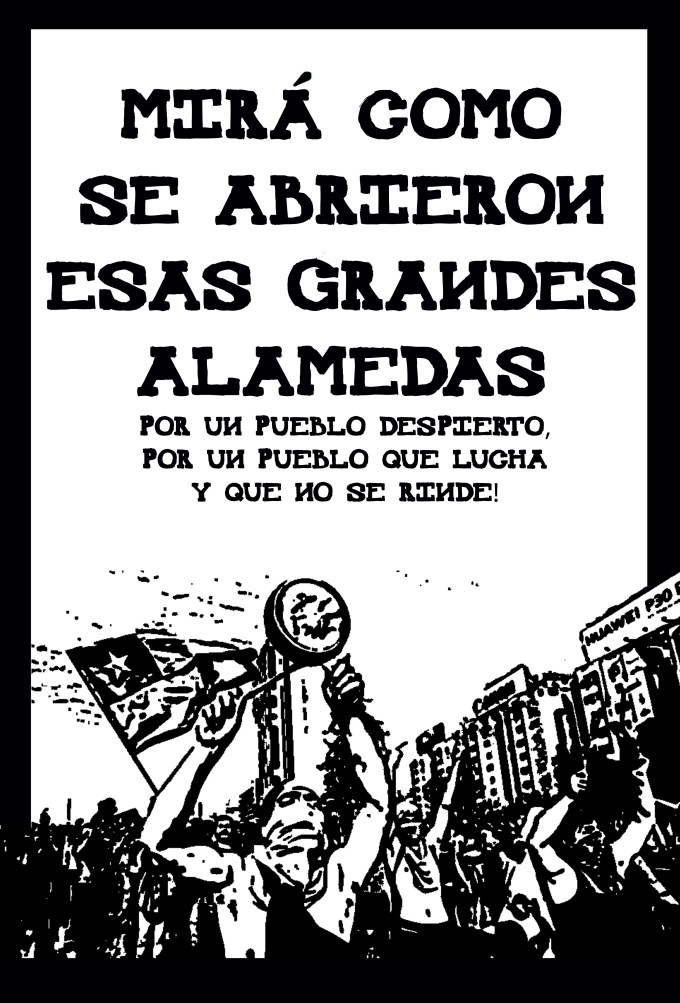
On October 18, 2019, Chile experienced the most significant social outbreak since the return to democracy in 1988. The rise of the subway passage fare by 3.75%, reaching a value of US $1.16, led to a call from secondary school students to evade payment as a form of protest, which, added to the insensitivity of the Government and its disconnection from the problems of citizens, inequality, lack of access to health care, education and fair pensions, triggered the social movements that remain alive today. According to the National Institute of Statistics, 50% of the labor force in Chile receives only $550 (USD) per month, while the minimum salary is only $414 (USD) per month. Based on this income, spending on transportation can consume as much as 13.78% of the minimum wage.[1] President Piñera’s response to the mobilizations was to say, “We are at war against a powerful, implacable enemy, who does not respect anything or anyone” social. With the explicit use of the word “war,” he moved and touched the Chilean imaginary, referring to Pinochet’s statements after the military coup [2], stating that there was an internal war in Chile, which justified the end of democracy. Under the same logic of war, Piñera defended the curfew, allowing the military to go into the streets to suppress the social protest.
For those of us who grew up under the Pinochet dictatorship the presence of the armed forces on the avenues brought to mind one of the darkest periods in our recent history, the military coup that destroyed the government of President Allende, a democratically elected socialist militant. It gave rise to seventeen years of obscurantism, with murders, torture, and economic violence. We believed this violence had been left in the past, but now expresses itself again in the brutality of the militarized police that control the country. According to Saavedra [3] in the dictatorship, Chile became a laboratory of the neoliberal model, consolidating social, economic, and political transformations that have remained in place to the present day, which in other circumstances would not have been possible. With the drafting of the 1980 Constitution, the regulatory role of the state was destroyed and the economy liberalized, privatizing health care, education and social security, and deepening social inequality over time, with a Gini index (one of the most common measurements of inequality) of 0.46.[4] This is one of the highest levels of inequality among the countries belonging to the Organization for Economic Cooperation and Development[5].
The Constitution that governs us is the same Constitution drafted by Pinochet and his ministers; it prevents structural changes that are necessary for the country to progress, such as access to decent health care, education, and pensions. For us this Constitution is the legacy of the Pinochet military dictatorship and democratic governments that did not have the political will to make the structural changes that Chile requires. The neo-liberal economic system that permeates everything and oppresses my country, has also been perpetuated because the subordinates, those of us who do not own capital, have accepted inequality, miserable pensions, and long waits to receive health care, as natural and necessary. As Joe Kincheloe puts it, facts cannot be separated from values or eliminated from their ideological basis; the relations between concept and object and between signifier and meaning are not fixed, but rather, are mediated by capitalist relations of production and consumption.[6]
The transformations imposed by the dictatorship have also permeated the academy. Chilean universities and researchers have long been lackeys of the system, incorporating economic and productivity-oriented criteria into our function within the university, such as academic performance evaluations, quantitative management indicators, metric efficiency, indexed publications, impact factors, and university rankings, whose results provide financial support to continue research. In this neoliberal system we are forced to produce commodified research in a short time-frame, without contributing to improving our country, whether by competing against each other, working individually or making alliances with groups or people with whom we can strengthen productivity.[7] My area of study is health care and qualitative methodologies. According to Norman Denzin [8], qualitative researchers are not objective, nor are we politically neutral observers who position ourselves outside of our area of study in the social world, we are historically and locally situated in the process we investigate. My point of view when I research is not aseptic or apolitical, since I work from the perspective of inequalities, situated in the health care arena, specifically associated with nursing care.
Until October 18, 2019, Chile has been determined by the historical, social and political processes and pressures of its recent past. Many times, I wondered how much longer we would continue to support the level of inequity, waiting twenty hours in the emergency room of the hospital, submitting to a mediocre public primary and secondary educational system because you have to pay in Chile to access quality education. Chile is a country without social mobility and in which the powerful do not receive punishment because in Chile poverty is criminalized instead.[9] Until October 18, we live alienated, resigned lives, keeping our anger and resentment to ourselves. In our case, the academics, we have competed against each other to obtain scarce funds for research, without looking each other in the eyes and hiding ourselves in our offices, away from each other so as not to risk others stealing our ideas. Although most of us had grown and fought against the dictatorship, we had forgotten the values that allowed us to reconquer democracy; solidarity, teamwork, companionship and support when someone suffers or is afraid. We were part of the same system that mistreated, stressed and made us sick and that required us to publish to meet production goals, forgetting that our dream of studying and investigating had been to contribute to the betterment of society and to improving people’s lives.
Until October 18, we health professionals, mostly from patient care, had normalized and accepted the lack of hospital supplies, laboratory tests, x-rays, the lack of professionals, and buildings in poor condition. We were complicit in an unfair system that favors the prominent businessmen, and that leaves the resources of Chile in the hands of seven wealthy families. In Chile, the health network operates under the logic of the market, with a payment-for-benefit system with tariffs on health care, imposing self-financing on hospitals and the adoption of private sector management models, with a decrease in fiscal expenditure in health care and a transfer of resources and patients to private providers, through the demand subsidy.[10] In this scenario, videos of students evading the subway began to circulate through social networks, with responses from different areas of Chilean society. It’s not 30 pesos, it’s 30 years. October 5, 2019, we celebrated 30 years of the referendum in which we said “No” to the Pinochet dictatorship and could begin the democratic process that filled us with hopes for the slogan “Chile, Joy is coming.” Unfortunately, our democracy became a democracy “as far as possible,” as Patricio Aylwin, the first Chilean president after the return of democracy, expressed. It consolidated the neoliberal model.[11]
The October movements woke up the sleepy academy and aroused our sense of obligation to put ourselves at the service of the country, and the new social movements themselves. Messaging groups emerged, initially timidly sharing news and then becoming our instrument of communication and information, necessary due to the informational prison in which we found ourselves. Students with the support of teachers, especially in nursing, organized first aid brigades in street protests because the injured are afraid to go to formal health centers because of fear of being denounced to the police. Unfortunately, systematic violence by the government has been increasing. The results are human rights violations, including ocular mutilation, sexual abuse, and unnecessary violence, as documented by Amnesty International, the Office of the United Nations High Commissioner for Human Rights and Human Rights Watch among others.[12] [13] [14] University professors suddenly remember that we are citizens, and we are people who, above all, have a social responsibility to contribute to the country. We regrouped and re-organized, forgetting differences in academic hierarchy and ideology, to refocus on the values we share, such as social justice, democracy, solidarity and freedom. Since restoring a sense of community, which we had lost, we have been on the streets marching, caring for the wounded, defending our students, taking a stand and getting the word out, organizing councils [cabildos] and educating. We are also educating ourselves, learning day by day from the strength of the people who struggle to survive, who borrow money to feed themselves or access health care, paying excessive interests to the banks, all backed by the model defended by the Chilean government.
It had been a long time since I have been protesting in the streets of Santiago, since we celebrated the return of democracy. In the protest, I feel a stirring of emotions and memories of hope, joy mingled with fear and insecurity. A citizen social movement, without violence, which in any democratic country would be protected with respect by the police, is violently repressed in Chile. According to the latest report by the Chilean National Institute of Human Rights (January 31, 2020), 3746 people have been injured in the protests, of which there are 398 with eye trauma, of which 29 have lost one or both eyes. There have also been twenty three reported homicides related to the protests.[15] The tear gas irritates my eyes and my lungs. Although I am far from the area of the most overt repression, I can hardly breathe, and I hear sounds of bullets, pellets and the engines of police vehicles. We do not understand how a democratically elected government, member of the OECD, could violate its citizens in this way. We march with white aprons and posters of the association of academics, and it seems that the police are less violent with us; we are again privileged.
In one of the days of protests, as a nurse, I attended a young man injured by pellets who had been participating in the front line. They are the ones who directly receive the worst police violence, protecting those who go further back in the marches. We had to transfer him to a hospital for the extraction of a kind of bullet composes of a mixture of different metals. When we asked which family member we could give notice to, he fell silent and looked down, confessed that he had no one, that he had grown up in the National Service of Minors (SENAME), a government institution which has a history of systematically abusing the children and adolescents in its care[16][17]. He did not carry any identification or haven any clothing, such as a helmet or mask, to protect himself from bullets or tear gas. When we asked him why he was on the street exposing himself in those conditions, he told us that, for the first time, he felt loved and respected and, above all, he felt that he belonged to something. He repeated it several times with pride and joy, despite the pain of his wounds. As graffiti on the walls of Santiago says: “Until dignity becomes customary.”
A week after the social outbreak, we were invited by a Commission of the Senate of the Republic to explore possible “joint solutions.” Although some academics began by arguing that one of the causes of social protest was the limited contribution that the Government of Chile gives to science, the position of most of us was that it is impossible to have a dialogue with the government while it is violating the human rights of its citizens. The people of Chile continue to fight, in the streets, in the Plaza de la Dignidad (Square of Dignity), being cruelly repressed, but the strength of the Mapuche Nation that runs through our mestizo blood drives us forward. The Mapuche Nation opposed the Spanish Empire for three hundred years and were never conquered by the Spaniards. Afterward, they were brutally oppressed by almost every government of independent Chile. Some of their leaders were killed by Chilean authorities in public space, like Camilo Catrillanca, only a year ago; something that was remembered during the current protests.

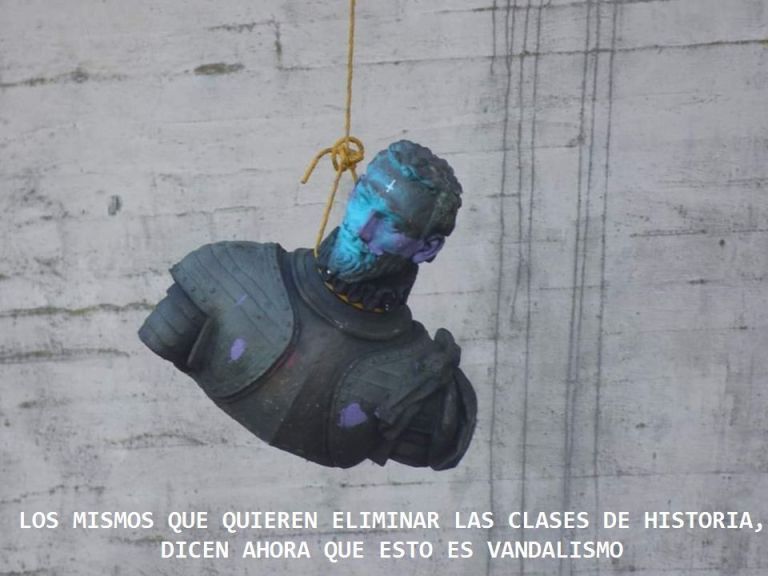
The most emblematic image of the protests shows the raised Mapuche flag that has become one of their most important symbols. Cities in the Mapuche region, such as Temuco and Concepcion, were scenes of especially intense protests. Statues of Spanish conquerors have been decapitated. The changes that are required in Chile today are structural, and it is necessary to change the Constitution, which continues to support neoliberal policies that make the poor and the workers poorer and the rich and powerful richer. The Chilean Academy is shaken; we have become aware of how far we were from people and society, and how a sense of hopelessness had also invaded us. We can no longer lock ourselves in laboratories or in classrooms to look at social movements from afar, but we must be active beings with the excluded and violated. Sometimes we feel pessimistic, petrified with the terrible feeling of being in a spiral that is repeated day after day. We march and the government does not listen, denies its human rights violations and only delivers the barest crumbs of social reforms. This situation has been a reality of hundreds of years in the history of the Global South, and in particular of our Latin America. As the great Victor Jara said:
Again, they want to stain
my land of working blood,
Those who speak of freedom
And they have black hands.
Chile is still in the fight; Neoliberalism was born in Chile and will die in Chile.
Mirliana Ramírez-Pereira is a Registered Nurse, Master in Community Psychology and Doctor in Nursing Science. She is a scholar in the Department of Nursing at the University of Chile. Her research areas are social representations, qualitative methodologies, and caring democracy. Her dream is more equality and social justice for Chile.
Notes
[1] Instituto Nacional de Estadisticas (2019) https://www.ine.cl/prensa/2019/09/16/ingreso-laboral-promedio-mensual-en-chile-fue-de-$573.964-en-2018
[2] Federico Navarro and Carlos Tromben, “Estamos en guerra contra un enemigo poderoso, implacable”: los discursos de Sebastián Piñera y la revuelta popular en Chile. Literatura y Lingüística, No. 40 (ISSN 0716-5811), pp. 295–324. http://ediciones.ucsh.cl/index.php/lyl/article/view/2083/1864
[3] Eduardo Saavedra, “El Modelo Económico-Político de Chile: Desarrollo 115 Institucional en la Encrucijada,” Economía y Política, vol. 1 no. 1, (2014), pp.117-148.
[5] Organization for Economic Co-operation and Development, In It Together Why Less Inequality Benefits All in Chile (2015).
[6] Joe Kincheloe, “Critical Pedagogy and Qualitative Research: Moving to the Bricolage,” in The SAGE Handbook of Qualitative Research, edited by N.K. Denzin and Y. Lincoln Eds. (California: Sage, 2011), p. 163-177.
[7] Norman K. Denzin, The Qualitative Manifesto: A Call to Arms (Walnut Creek, CA: Left Coast Press, 2010).
[8] Norman K. Denzin, Qualitative Inquiry in Neoliberal Times (Routledge: New York (2017).
[9] Nelly León, “Capellana de la cárcel de mujeres, al Papa: ‘En Chile se encarcela la pobreza’” Emol.com (February 6, 2020) https://www.emol.com/noticias/Nacional/2018/01/16/891449/Capellan-de-la-Carcel-de-mujeres-Lamentablemente-en-Chile-se-encarcela-la-pobreza.html
[10] Matías Goyenechea, “Estado subsidiario, segmentación y desigualdad en el sistema de salud chileno,” Cuadernos Medico Sociales vol. 59, no. 2. (2019), pp.7-12.
[11] Tomás Moulian, “En la Medida de lo Posible: El otro Patricio Aylwin,” El Desconcierto (July 31, 2016) https://www.eldesconcierto.cl/2016/07/31/en-la-medida-de-lo-posible-el-otro-patricio-aylwin/
[12] Amnesty International American Regional Office, “Letter to Piñera” (“Monitoreo de la situación de derechos humanos en Chile”), (October 21, 2019), https://amnistia.cl/wp-content/uploads/2019/10/191021-3-CH-Carta-abierta-Sebastian-Pin%CC%83eraFINAL.pdf
[13] UN Human Rights Commission, Report on Chile (October-November 2019), https://www.ohchr.org/Documents/Countries/CL/Report_Chile_2019_SP.pdf
[14] Human Rights Watch, Report on Chile (November 2019), https://www.france-chili.com/informe-completo-de-hrw-en-chile/
[16] CIPER Journalistic Research Center, Santiago, Chile, Análisis del funcionamiento residencial en centros dependientes del servicio nacional de menores (December 2018), https://ciperchile.cl/wp-content/uploads/informe-emilfork4.pdf
[17] United Nations Human Rights Commission, Informe de la investigación relacionada con Chile en virtud del artículo 13 del Protocolo facultativo de la Convención de los derechos del niño relativo a un procedimiento de comunicaciones (June 2018). http://www.minjusticia.gob.cl/media/2018/07/Informe_del_Comit%C3%A9_de_la_Ni%C3%B1ez_de_ONU.pdf
Spanish Language Version
Reflexiones desde la Academia Ciudadana, Política y Critica
Mirliana Ramírez-Pereira
El 18 de octubre del 2019, Chile vivió el estallido social más grande desde el retorno a la democracia en 1988. El alza del pasaje del metro en un 3,75% alcanzando un valor de US$ 1,16, esto provocó un llamado de los estudiantes secundarios a evadir el pago, como una forma de protesta, lo que, sumado a la insensibilidad del Gobierno, desconectado de los problemas de los ciudadanos, la desigualdad, falta de acceso a salud, educación y pensiones justas, dieron inicio a los movimientos sociales, los cuales que se mantienen. Según el Instituto Nacional de Estadísticas 50% de la población laboralmente activa recibe US$550, mientras que el sueldo mínimo alcanza a US$ 414. Según esto, el gasto en transporte ascienda a un 13.78% del sueldo mínimo.[1] La respuesta del Presidente Piñera frente a las movilizaciones fue decir “Estamos en guerra contra un enemigo poderoso, implacable, que no respeta a nada ni a nadie” social. Con el uso explícito de la palabra “guerra”, movió y conmovió el imaginario chileno, haciendo alusión, como plantean Navarro y Tromben a las declaraciones de Pinochet posteriores al golpe militar [2], afirmando que existía una guerra interna en Chile, que justificaba el fin de la democracia. Bajo la misma lógica de guerra, Piñera justificó el toque de queda, permitiendo la salida de los militares a la calle para reprimir la protesta social.

Para quienes crecimos en la dictadura de Pinochet, la presencia de las fuerzas armadas en las avenidas trajo a la memoria uno de los periodos más oscuros de nuestra historia reciente, el golpe de Estado que destruyó un gobierno del Presidente Allende, militante socialista elegido democráticamente, lo que dio origen a 17 años de oscurantismo, con asesinatos, torturas y violencia económica, que creíamos había quedado en el pasado, pero que ahora nuevamente se expresa en la brutalidad de la policía militarizada que controla al país.
Según Eduardo Saavedra [3] en la dictadura, Chile se convirtió en un laboratorio del modelo neoliberal, consolidando transformaciones sociales, económicas y políticas que se mantienen hasta nuestros días, que en otras circunstancias no hubieran sido posibles. Con la redacción de la Constitución de 1980, se atomizó el rol del Estado y liberalizó la economía, llegando a privatizar la salud, educación y seguridad social, profundizando con el paso del tiempo la desigualdad social, con el índice de Gini o de desigualdad social de 0,46,[4] una de las más altas entre los países pertenecientes a la Organization for Economic Cooperation and Development.[5]
La Constitución que nos gobierna es la misma redactada por Pinochet y sus ministros, que impide cambios estructurales necesarios para el país, como son el acceso a una salud, educación y pensiones dignas. Para nosotros, los chilenos, es el legado de la dictadura militar de Pinochet y de los gobiernos democráticos que no tuvieron la voluntad política para realizar los cambios estructurales que requiere Chile. El sistema económico, que finalmente permea todo y oprime a mi país, se manifiesta también porque los subordinados, los que no somos dueños del capital, hemos aceptado como naturales y necesarias, la inequidad, las pensiones miserables y las largas esperas para recibir una atención de salud. Como plantea Joe Kincheloe los hechos no pueden separarse de los valores o eliminarse de su base ideológica; las relaciones entre concepto y objeto y entre significante y significado no son fijas y están mediadas por las relaciones de producción y consumo capitalistas.[6]
Las trasformaciones impuestas por la dictadura también han permeado la academia. Las universidades e investigadores chilenos durante mucho tiempo hemos sido lacayos del sistema, incorporando a nuestras universidades criterios economicistas y orientados a la productividad como son las evaluaciones de desempeño académico, indicadores cuantitativos de gestión, eficiencia métrica, publicaciones indexadas, factor de impacto, ranking universitario, cuyos resultados supeditan el apoyo financiero para continuar investigando. En este sistema neoliberal nos vemos obligados a producir artículos en corto tiempo, sin que estos contribuyan a un mejor país, a competir unos contra otros, a trabajar en forma individual o a realizar alianzas con grupos o personas con las cuales podamos fortalecer la productividad.[7] Mi área de estudio es el cuidado desde las metodologías cualitativas. Según Norman Denzin [8] los y las investigadoras cualitativas no somos objetivos, tampoco somos observadores políticamente neutros que nos posicionamos fuera o sobre el estudio en el mundo social, si no que estamos histórica y localmente situados en el proceso que investigamos. Mi punto de vista cuando investigo no es aséptico ni apolítico, ya que trabajo desde la mirada de las desigualdades, situada en la arena de atención de salud, específicamente del cuidado enfermero.
Hasta el 18 de octubre del 2019, Chile estuvo aparentemente determinado por los procesos históricos, sociales y políticos de su pasado reciente. Muchas veces me pregunté hasta cuanto soportaríamos el nivel de inequidad, la espera de 20 horas en el servicio de urgencias del hospital, el conformarse con una educación mediocre de primaria y secundaria ya que para tener acceso a educación de calidad hay que pagar, en un país sin movilidad social y en el cual los poderosos no reciben castigo porque en Chile se encarcela la pobreza.[9] Hasta el 18 de octubre vivimos enajenados, resignados, guardando rabia e indignación. En el caso nuestro, los y las académicas, compitiendo unos con otros para obtener los escasos fondos destinados a investigación, sin vernos a los ojos y sin encontrarnos, cada uno en su despacho, lejos del otro para no arriesgarnos a que nuestras ideas puedan ser copiadas por otros. Aunque la mayoría de nosotros habíamos crecido y luchado contra la dictadura, habíamos olvidado los valores que permitieron reconquistar la democracia; la solidaridad, el trabajo en equipo, el acompañarnos y sostenernos cuando alguien sufre o tiene miedo. Éramos parte del mismo sistema que nos maltrataba, estresaba y enfermaba y que nos exigía publicar para cumplir las metas de producción, olvidando que nuestro sueño de estudiar e investigar había sido poder aportar a la sociedad y a mejorar la vida de las personas.
Hasta el 18 de octubre, nosotros profesionales de la salud, mayoritariamente provenientes de la atención de pacientes, habíamos normalizado la falta de insumos hospitalarios, exámenes de laboratorio, radiografías, la falta de profesionales, edificios en mal estado, éramos cómplices de un sistema injusto que favorece a los grandes empresarios y que deja en manos de 7 familias los recursos de Chile. En Chile la red de salud funciona bajo las lógicas del mercado, con un sistema de pago por prestación con aranceles en las atenciones de salud, imponiendo el autofinanciamiento de los hospitales y adopción de modelos de gestión del sector privado, con una disminución del gasto fiscal en salud y un traspaso de recursos y pacientes a prestadores privados, por medio del subsidio a la demanda.[10] En este escenario comenzaron a circular por redes sociales videos de estudiantes evadiendo el metro, con respuesta desde distintos espacios de la sociedad chilena; no son 30 pesos son 30 años. El 5 de octubre del 2019 se cumplieron 30 años del plebiscito en el cual dijimos No a la dictadura de Pinochet y pudo comenzar el proceso democrático que nos llenó de esperanzas por el slogan “Chile, la alegría ya bien”. Desgraciadamente nuestra democracia se convirtió en una democracia “en la medida de lo posible”, como expresó Patricio Aylwin, primer presidente chileno posterior al retorno de la democracia, lo que consolidó el modelo neoliberal.[11]
Los movimientos sociales de octubre despertaron a la academia adormecida, la obligación de ponernos al servicio del país y de los movimientos sociales. Surgieron los grupos de mensajería , en un principio tímidamente compartiendo noticias para luego convertirse en nuestro instrumento de comunicación y de información, necesarios debido al cerco informativo en que nos encontramos. Los estudiantes con apoyo de los profesores, especialmente de Enfermería, organizaron brigadas de primeros auxilios para atención en las protestas callejeras, debido a que los heridos temen acudir a los centros de salud formales por miedo a ser entregados a la policía. Desafortunadamente la violencia sistemática de parte del gobierno ha ido aumentando con violaciones a los derechos humanos, lo que incluyen mutilaciones oculares, abusos sexuales, violencia innecesaria, documentado por Amnesty International, Oficina del Alto Comisionado de las Naciones Unidas para los Derechos Humanos, Human Rights Watch entre otros.[12] [13] [14] Los profesores universitarios de pronto recordamos que somos ciudadanos y somos pueblo y que por, sobre todo, tenemos la responsabilidad social de aportar al país. Nos reagrupamos y organizamos, dejando de lados las diferencias de jerarquía académica y de ideologías, para reenfocarnos en los valores que compartimos como son la justicia social, democracia, solidaridad y libertad. Luego del retorno al sentido de comunidad, el cual habíamos perdido, hemos estado en las calles marchando, atendiendo a los heridos, defendiendo a nuestros estudiantes, tomando postura y sacando la voz, organizando cabildos y educando… y educándonos, aprendiendo día a día de la fuerza de la gente que lucha para sobrevivir, que se endeuda para alimentarse o acceder a atención de salud, pagando intereses usuremos a los bancos, todo avalado por el modelo que defiende el gobierno chileno.
Hacía mucho tiempo que no salía a la calle a marchar en las calles de Santiago, desde que celebramos el retorno de la democracia. En la protesta siento una seguidilla de emociones y evocó recuerdos de esperanza, alegría entremezclada con miedo e inseguridad. Un movimiento social ciudadano, sin violencia, que en cualquier país democrático sería protegida con respeto por la policía, en Chile es reprimida violentamente. Según el último informe Instituto Nacional de Derechos Humanos (Chile, 31.01.2020) hay 3746 personas heridas, de los cuales hay 398 con trauma ocular de los cuales 29 han perdido uno o ambos ojos, también se han presentado 23 querellas por homicidio.[15] El gas lacrimógeno irrita mis ojos y vías respiratorias, aunque estoy lejos de la zona de mayor represión me cuesta respirar, se escuchan sonidos de balas, balines y motores de vehículos policiales, todavía no comprendemos como un gobierno elegido democráticamente, miembro de la OCDE, vulnera a sus ciudadanos de esta forma. Nosotros marchamos con delantales blancos y los carteles de la asociación de académicos, pareciera que son menos violentos con nosotros, nuevamente somos privilegiados
En una de las jornadas de protestas, en mi condición de enfermera, atendí a un joven herido por balines, que había estado participando en la primera línea, ellos son los que reciben directamente la violencia policial, protegiendo a quienes vamos más atrás en las marchas, debíamos trasladarlo a un Hospital, para la extracción de balines, cuando le preguntamos a quien de su familia podíamos dar aviso, enmudeció y bajó la mirada, nos confesó que no tenía a nadie, que había crecido en el Servicio Nacional de Menores (SENAME), institución gubernamental en que se han cometido de manera permanente y sistemática acciones que lesionan los derechos de los niños, niñas y adolescentes, [16] [17] tampoco tenía identificación ni medidas de protección como cascos o gafas, necesarias para soportar la represión con disparos de baliness metálicos y bombas lacrimógenas. Cuando le preguntamos porque estaba en la calle exponiéndose en esas condiciones, nos dijo que por primera vez se sentía querido y respetado y por, sobre todo, sentía que pertenecía a algo. Lo repitió varias veces con orgullo y alegría, a pesar del dolor de sus heridas. Como dicen los grafitis en los muros de Santiago, hasta que la dignidad se haga costumbre.
A una semana de iniciado el estallido social fuimos invitados por una Comisión del Senado de la Republica para buscar “soluciones en conjunto”. Aunque algunos académicos comenzaron argumentando que una de las causas de la protesta social era el escaso aporte que el Gobierno de Chile daba a la Ciencia, la postura de la mayoría de nosotros fue que no hay dialogo mientras se violen los derechos humanos.
El pueblo de Chile sigue luchando, en las calles, en la Plaza de la Dignidad, siendo cruelmente reprimido, pero la fuerza del pueblo mapuche, cuya sangre corre por nuestras venas, nos impulsa a seguir adelante. La Nacion Mapuche batalló durante 300 años contral el Imperio español y nunca fue conquistado. Luego, fueron brutalmente oprimidos por los gobiernos de Chile. Algunos de sus líderes fueron ejecutados por las autoridades chilenas, como Camilo Catrillanca, asesinado hace un año, recordado durante las protestas actuales.
La imagen más emblemática de las protestas muestra la bandera mapuche, la cual se ha convertido en un símbolo de las protestas.


Ciudades de la region mapuche, como Temuco y Concepción, fueron escenarios de protestas especialmente intensas, con actos en que las estatuas de los conquistadores españoles fueron decapitadas.
Los cambios que requiere Chile son estructurales, es necesario cambiar la Constitución, que avala las políticas neoliberales que hacen que los pobres y los trabajadores sean más pobres y los ricos y poderosos más ricos. La Academia chilena está remecida, hemos tomado conciencia de lo lejos que estábamos de las personas y de la sociedad, de cómo la desesperanza aprendida también nos había invadido. Ya no podemos encerrarnos en los laboratorios o en los gabinetes a mirar desde lejos los movimientos sociales, sino que debemos ser activos estar con los excluidos y vulnerados. A veces nos sentimos pesimistas, con mucho miedo y con la terrible sensación de estar en un espiral que se repite día tras día. Marchamos y el Gobierno no escucha, niega las violaciones a los derechos humanas y solo entrega migajas maquilladas de reformas sociales. Esto ha sido una realidad de cientos de años en la historia del Sur Global, y en particular de nuestra Latinoamérica, como dijo el gran Victor Jara:
De nuevo quieren manchar
mi tierra de sangre obrera,
Los que hablan de libertad
y tienen las manos negras.
Chile sigue en la lucha; el neoliberalismo nació en Chile y morirá en Chile.
Referencias
[1] Insituto Nacional de Estadisticas (2019). https://www.ine.cl/prensa/2019/09/16/ingreso-laboral-promedio-mensual-en-chile-fue-de-$573.964-en-2018.
[2] Navarro, F. Tromben C. “Estamos en guerra contra un enemigo poderoso, implacable”: los discursos de Sebastián Piñera y la revuelta popular en Chile. Literatura y Lingüística N° 40ISSN 0716 – 5811 / pp. 295 – 324Navarro y Tromben.
http://ediciones.ucsh.cl/index.php/lyl/article/view/2083/1864.
[3] Saavedra, E. (2014). El Modelo Económico-Político de Chile: Desarrollo 115 Institucional en la Encrucijada. Economía y política 1(1), 117-148.
[5] Organization for Economic Co-operation and Development (2015). In It Together Why Less Inequality Benefits All in Chile.
[6] Kincheloe, J. M. (2011). Critical Pedagogy and Qualitative Research: moving to the bricolage. Denzin & Y.S. Lincoln Eds. The SAGE Handbook of Qualitative Research In N. Denzin & Y. Lincoln Eds. The SAGE Handbook of Qualitative Research (p. 163-177). California: SAGE.
[7] Denzin, N.K. (2010). The qualitative manifesto. A call to arms. Walnut Creek, CA: Left Coast Press.
[8] Denzin, N. (2017). Qualitative Inquiry in Neoliberal Times. New York, NY: Routledge.
[9] EMOL. Nelly León, capellana de la cárcel de mujeres, al Papa: “En Chile se encarcela la pobreza” Fuente: Emol.com – https://www.emol.com/noticias/Nacional/2018/01/16/891449/Capellan-de-la-Carcel-de-mujeres-Lamentablemente-en-Chile-se-encarcela-la-pobreza.html.
[10] Goyenechea M. (2019). Estado subsidiario, segmentación y desigualdad en el sistema de salud chileno, Cuadernos Medico Sociales 59(2):7-12.
[11] Moulian, T. (2016). En la Medida de lo Posible: El otro Patricio Aylwin. https://www.eldesconcierto.cl/2016/07/31/en-la-medida-de-lo-posible-el-otro-patricio-aylwin/.
[12] Amnesty International (2019). Carta abierta a Piñera: Monitoreo de la situación de derechos humanos en Chile. https://amnistia.cl/wp-content/uploads/2019/10/191021-3-CH-Carta-abierta-Sebastian-Pin%CC%83eraFINAL.pdf.
[13] Naciones Unidas Derechos Humanos. Informe sobre la Misión a Chile. 30 de octubre al 22 de noviembre de 2019. https://www.ohchr.org/Documents/Countries/CL/Report_Chile_2019_SP.pdf.
[14] Human Rights Watch. Informe HRW en Chile. https://www.france-chili.com/informe-completo-de-hrw-en-chile/.
[16] CIPER (2019). Análisis del funcionamiento residencial en centros dependientes del servicio nacional de menores. https://ciperchile.cl/wp-content/uploads/informe-emilfork4.pdf.
[17] United Nations (2018). Informe de la investigación relacionada con Chile en virtud del artículo 13 del Protocolo facultativo de la Convención de los derechos del niño relativo a un procedimiento de comunicaciones: http://www.minjusticia.gob.cl/media/2018/07/Informe_del_Comit%C3%A9_de_la_Ni%C3%B1ez_de_ONU.pdf.


